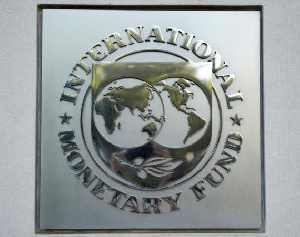The International Monetary Fund says the resilience of banks may be tested in some countries in the face of a sharp slowdown in economic activity that may turn out to be more severe and lengthy than currently anticipated.
This development, it said, may lead to larger-than-anticipated losses.
In its Global Financial Stability Report released on Wednesday, 15 April, 2020, the IMF said a prolonged period of dislocation in financial markets may result in distress among other financial institutions, including asset managers, to an extent that could lead to a credit crunch for nonfinancial borrowers.
Financial vulnerabilities had been elevated in some systemically important economies before the outbreak of COVID-19 and they may become exposed should financial conditions continue to tighten, it added.
“Countries where banks have high nonperforming loans, significant exposures to state owned enterprises, and large holdings of government bonds are vulnerable to an intensification of the sovereign-financial sector feedback loop.
“For example, in India, where nonbank financial institutions had already been under intense funding pressure, following two defaults before the COVID-19 shock, state-owned banks have a sizable stock of bad loans and significant links to nonbank financial institutions.
Other countries, notably African economies, may be vulnerable to disruptions in trade financing if cross-border funding and correspondent banking relations become affected.”
It however commended Central banks globally for taking bold and decisive actions by easing monetary policy, purchasing a range of assets, and providing liquidity to the financial system in an effort to lean against the tightening in financial conditions and maintain the flow of credit to the economy.
As policy rates are now near or below zero in many major advanced economies, unconventional measures and forward guidance about the expected policy path are becoming the main tools for these central banks going forward, it emphasised.
It explained further that central banks may also consider further measures to support the economy during these challenging times, whereas policymakers need to maintain a balance between safeguarding financial stability and supporting economic activity.
Business News of Wednesday, 15 April 2020
Source: classfmonline.com













